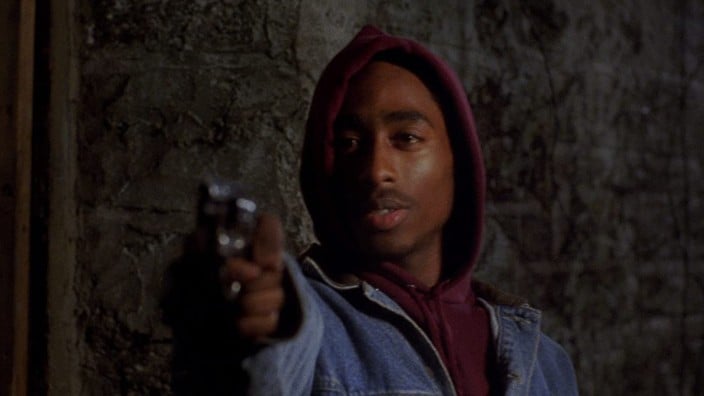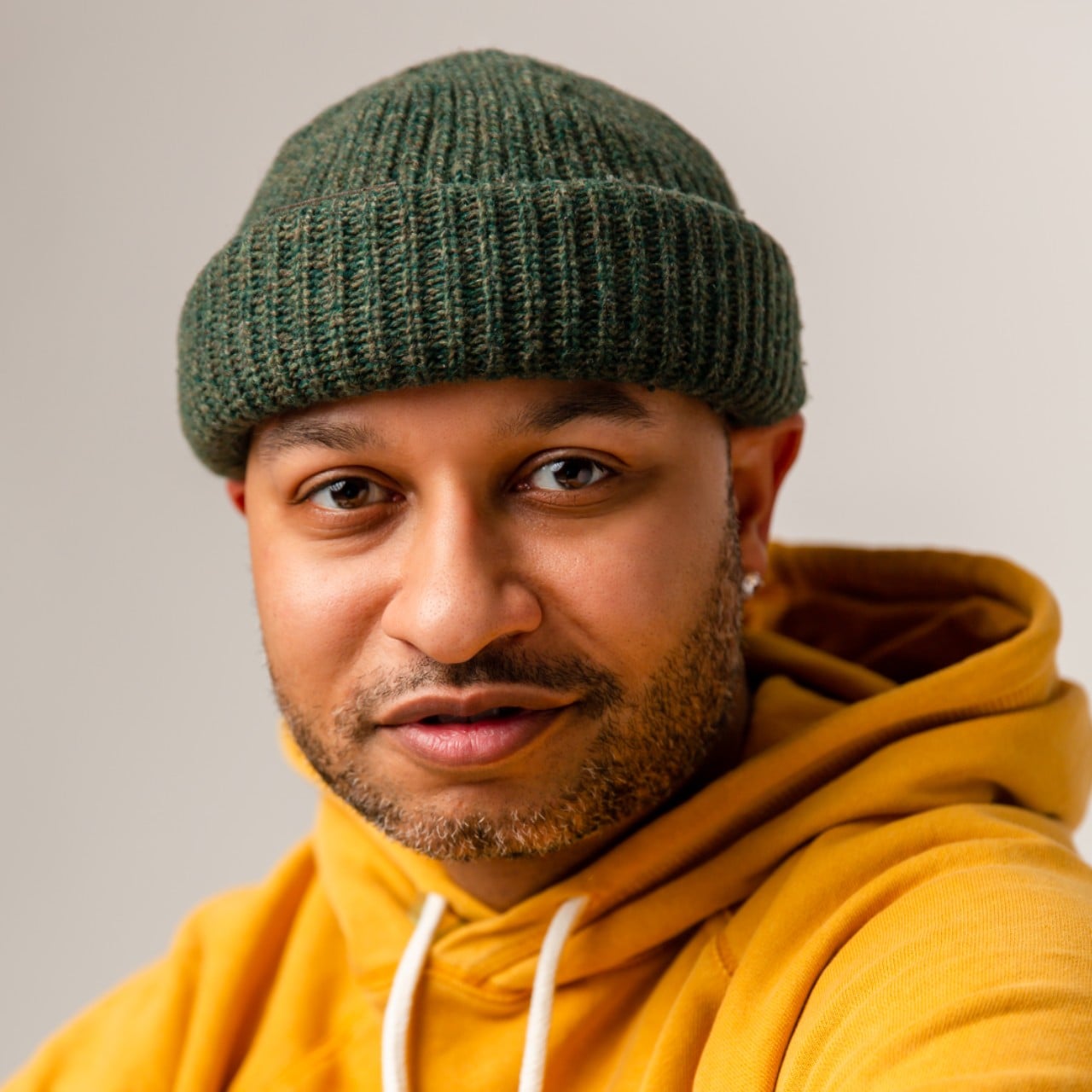10 thoughts and reflections about ‘Juice’ because it’s 30 years old — and ZOMG!
Tupac Shakur and Omar Epps’ coming-out party just turned 30, and I’ll bet it’s still good to you.
On Jan. 17, 1992, the theatrical release date for Juice — the Eric Dickerson-written-and-directed classic, star-making movie for Tupac Shakur and Omar Epps — I was a 12-year-old military brat whose family was stationed in Frankfurt, Germany. I can’t tell you exactly when I saw it, definitely somewhere in probably April or May 1992 — we got movies a few months after their theatrical releases on overseas bases — but I know I saw Juice in a theater on the Abrams Complex, one of the installations in Frankfurt that also housed the American high school. Today, I’m a 42-year-old married father of four living in Washington, D.C. That means 30 (!!!!!!!) years have passed since Juice was unleashed onto the masses, introducing the vast majority of folks to Tupac Shakur and everybody to Omar Epps.
Hosanna in the highest!
Juice stayed with me from the time I saw it in 1992 for three reasons:
1) By the time of its release, I’d already fallen in love with hip-hop in the Brown Sugar way and was in the constant consumption of all things hip-hop phase of life, and Juice was such a hip-hop movie — from the DJ sets and all of the rappers or personalities I’d heard about who had cameos in the movie to the New York City setting and the soundtrack.
2) Tupac Tupac’d the shit out of this film. His role as Roland Bishop is iconic.
3) I’d never seen a movie quite like Juice before, and I’m not entirely sure I have since. It’s still in rotation, though maybe not as frequently as other classics like You Got Served or Who Made the Potato Salad? I’m joking, but only sort of.
In honor of its 30th anniversary, I recently rewatched Juice, and, because I’m a thinker, I thought some things through and reflected on some others. I’m also a sharer. Since sharing is caring, I will share some of those thoughts and reflections with you. I also have the juice. But I’d like you to have juice as well. I’m losing my way; perhaps I didn’t know the ledge. Do you see what I did there? Maybe you do. This is getting dumb. Let’s just move on, shall we?
Here are 10 thoughts and reflections about Juice because it’s 30 years old — and ZOMG!
1. It’s still amazing, even 30 years later, how much presence Tupac had on screen.
Maybe it’s because he’s, ya know, TUPAC, and I have all of this other information about his life and career, but he really did leap off the screen as a clear star. I feel like it was impossible to walk away from that movie without thinking, “That Tupac guy is going places.” He did, by the way, go places.
2. What makes the Tupac part so interesting is that for a solid few years, I feel like every single girl/woman I knew was in love with Khalil Kain, so I assumed Kain’d have had a bigger career.
This isn’t to say his career isn’t or hasn’t been fine; he’s been in movies and television shows, et cetera, but I am surprised he didn’t have a bigger career, so to speak. I really felt like Juice was Khalil Kain’s Illmatic and he’d have been able to live and eat bigger because of it for decades.
3. Omar Epps has legit been a part of my pop culture life for 30 years, and I don’t think he gets enough flowers.
It is entirely possible I’ve seen every movie and television show that Omar Epps has been part of, including last year’s Apple+ series with Octavia Spencer, Truth Be Told, and Starz’s Raising Kanan. I don’t know that I watched them because of Epps, but I think I’m always happy that he’s there. Like, “Yo, Omar Epps is in this!!!” You know what? I think Omar Epps is underappreciated for all of his contributions to Black entertainment. Forget flowers, Omar needs a whole botanical garden delivered to his front door. It probably goes without saying, but there will be more on this in the future.
4. Would you call this movie a psychological thriller? I’m torn on this.

So, Juice is clearly a tragic homie film: Four friends are torn apart over a tragedy, and nothing is ever the same. Man, the character Roland Bishop is a powder keg of angst, rage and circumstance, but Tupac’s rendering of Bishop is a mindfuck. This isn’t just a movie where things go bad; Bishop MAKES shit go bad. With intention. When Bishop said he didn’t give a fuck about anybody, and I realized he was crazy and leaned into it, I think we veered into a different type of movie.
5. I wonder if O-Dog from Menace 2 Society was patterned in any way after Bishop.
Maybe some of you know the answer, and it’s an obvious “yes,” but O-Dog was just responding to his surroundings; Bishop was setting in motion his own downfall, going along until whatever his life was came to an end. They both were “young, Black and just didn’t give a fuck,” aka America’s Nightmare, as Caine narrates it, but I wonder if Allen and Albert Hughes were like, “We need that nihilistic dude in our film, too.” Obviously, Tupac was famously supposed to be in Menace 2 Society, as well as Sharif.
6. So, we have to talk about the one interesting plot thing that’s just kind of like WTF? And WhyTF?
How in the hell did Quincy meet this divorced, adult-ass nurse woman in Yolanda who somehow felt like seeing a teenager — Q couldn’t have been more than what, 16 or 17? — was both appropriate and what she wanted to do? There’s no way in hell that is part of the movie in 2022; real talk, it didn’t make much sense back then. It wasn’t even necessary to advance the story in any significant way. Even when Steel is in the hospital, and Yolanda sees him, and Steel says that Bishop shot everybody — like, it didn’t affect the outcome at all. It was an interesting decision to advance the plot, and not only am I not understanding how it happened, the why of it also doesn’t make sense.
7. But they were apparently a thing thing, enough so for Q to give her number to his homies to reach him.
If you’ll remember, Steel called Q at Yolanda’s house from a payphone to tell him that he was scared of Bishop, who had more or less kidnapped him before shooting him. So, Steel had Yolanda’s number in his head by heart? Hell, Yolanda knows who all of Q’s friends are. That whole relationship just makes no sense.
8. I’m still mad Cypress Hill’s “How I Could Just Kill a Man” wasn’t on the soundtrack.
Juice’s soundtrack is iconic, but that song stood out so much in the movie, both for its messaging and where it was played, and because it jammed then and jams now. In fact, I liked that song so much at age 12, I waited through the credits to find out who performed it. It was listed in the credits, so I somehow convinced my father to buy me the soundtrack — which he did — only to discover it wasn’t on there and then had to convince him to also buy me Cypress Hill’s eponymous debut, which thankfully DID have the song. I had to buy two albums with my allowance to get one song.
9. If I’ve said it once, I’ve said it a million times: Queen Latifah has looked the exact same age for the last 33 years.
When this movie came out, Queen Latifah, who has a few scenes, was 22 but could have passed for 40 — which means at 40, she still looked like she did when she was 22 and, similarly, 19. Part of that was her style of dress, but shit, all I’m saying is, Queen Latifah has looked the exact same for decades, and that is goals.
10. I really want to know what happened to Q after the movie.
Steel told Yolanda that Bishop did it all, but the police were looking for Q because, basically, everybody in the ‘hood thought Q killed Raheem. Did everybody, including the police, just accept that it was Bishop and move on? Like, do we think that Q doesn’t go to jail for killing Old Man Quilles, Raheem and Bishop? The police needed somebody to take the fall. Also, he and Steel are accessories to murder anyway, so if anybody talks to the police, they both go to jail, right? This story is just tragic all the way around.

Panama Jackson is a columnist at theGrio. He writes very Black things, drinks very brown liquors and is pretty fly for a light guy. His biggest accomplishment to date coincides with his Blackest accomplishment to date, in that he received a phone call from Oprah Winfrey after she read one of his pieces (biggest), but he didn’t answer the phone because the Caller ID said “Unknown” (Blackest).
Have you subscribed to theGrio podcasts “Dear Culture” or “Acting Up?” Download our newest episodes now!
TheGrio is now on Apple TV, Amazon Fire and Roku. Download theGrio.com today!

